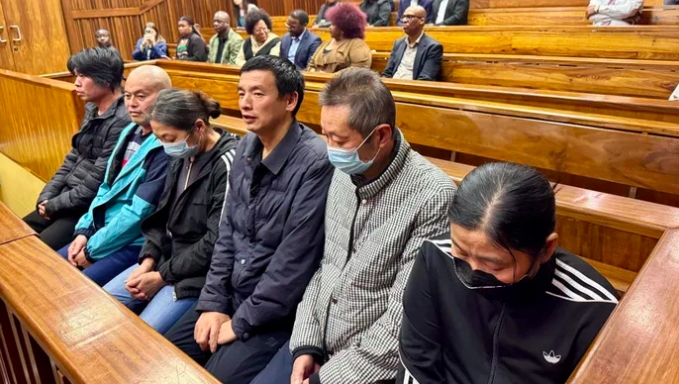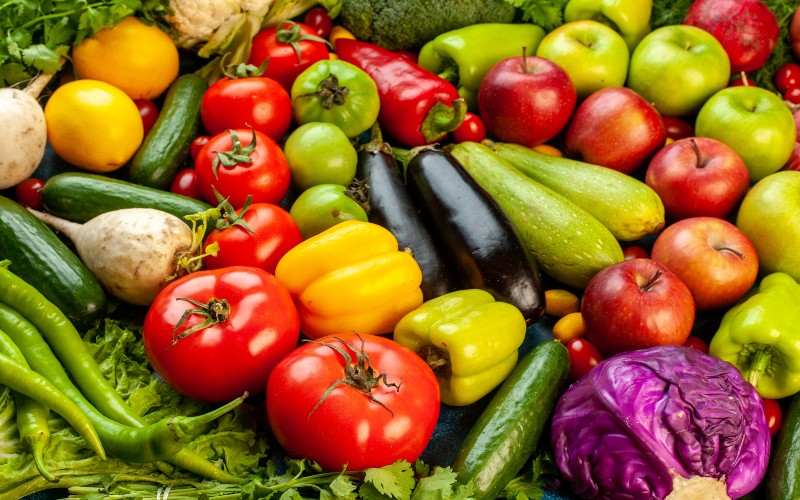South Africa jails seven Chinese nationals for 20 years each over human trafficking

Kevin Tsao, Chen Hui, Qin Li, Jiaqing Zhou, Ma Biao, Dai Junying, and Zhang Zhilian were jailed on Wednesday after being found guilty of 158 out of 160 charges brought against them.
Seven Chinese nationals have each been sentenced to 20 years behind bars after a South African court found them guilty of smuggling Malawian immigrants into the country in shipping containers and subjecting them to forced labour.
Kevin Tsao, Chen Hui, Qin Li, Jiaqing Zhou, Ma Biao, Dai Junying, and Zhang Zhilian were jailed on Wednesday after being found guilty of 158 out of 160 charges brought against them, including aiding illegal immigrants to stay in South Africa and violating labour laws by failing to register their operations and keeping proper records of their earnings.
More To Read
- Government reveals over 200 Kenyans lured to join Russian military, some injured or stranded
- Kenya warns of “sophisticated menace” over citizens trafficked to Southeast Asia
- Interpol cracks down on social media scams in Africa, makes 260 arrests
- DCI busts human trafficking syndicate recruiting Kenyans for Russia-Ukraine war front
- Kenya probes claims of citizens being used as soldiers in Russia-Ukraine war
- Kenya's ambassadorial nominee to Thailand Lucy Kiruthu proposes using financial tools to curb human trafficking
Earlier this year, the suspects, comprising four men and three women, were also found guilty of human trafficking and kidnapping.
They were initially arrested in 2019 after South African authorities, acting on a tip-off, raided the Beautiful City factory in Johannesburg, discovering 91 Malawian nationals, among them 37 children, working in inhumane conditions.
Tsao reportedly served as the factory's manager while the other suspects assisted him as supervisors.
Investigations later revealed that the illegal workers were forced to work 11-hour shifts, seven days a week, without proper training or safety equipment.
They were similarly paid below South Africa's minimum wage of $1.64 (Sh211) per hour, with any request for time off resulting in deductions from their wages.
According to the BBC, one worker testified that employees were confined to the heavily guarded factory and were not allowed to leave, even to buy food.
Under South African labour law, employees are not allowed to work more than nine hours a day and are generally entitled to a weekly rest period of at least 36 consecutive hours, including Sunday, unless an alternative agreement is made.
According to statistics portal Statista, South Africa remains a hub for human trafficking, serving not only as a destination for victims but also as a source and transit point for trafficking to other countries.
"Human trafficking has become a scourge in our country. We have become a destination as South Africa for human trafficking due to various reasons, including our porous borders," National Prosecuting Authority of South Africa spokesperson Phindi Mjonondwane said after the ruling.
Top Stories Today













































